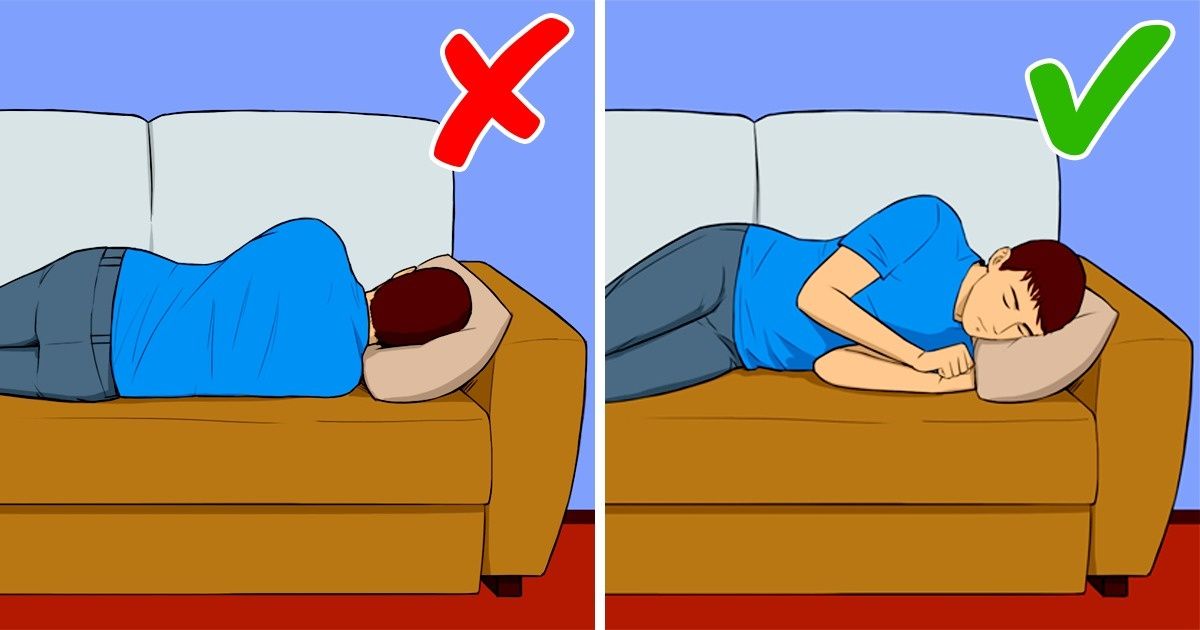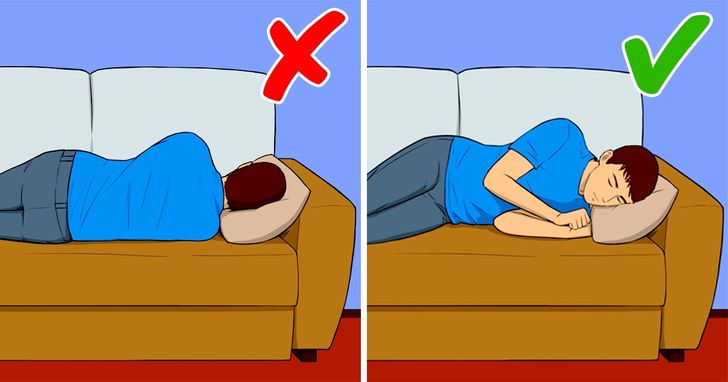17 Unique Finds That Made People Feel Like the Universe’s Favorite


According to scientists, about 6 nocturnal awakenings are considered normal for the average person. This goes back to our caveman days when we needed to wake up to ensure our safety. However, after these short periods of staying awake, we should be able to go back to sleep easily. If you can’t fall asleep immediately, there are probably some things that are preventing you from getting a good night’s rest.
Bright Side made a list of the most common reasons why you may wake up in the middle of the night and have trouble falling back asleep.

Symptoms such as chronic fatigue, headaches, heartburn, and neck or back pain may be caused by improper posture while you sleep. You should also pay attention to your bed — your mattress shouldn’t be too hard, but it shouldn’t be too soft, either. Check to make sure that your pillow supports your neck and your head, as well.
What to do: According to Dr. John Douillard, sleeping on your left side can improve your digestion and blood circulation, promote emotional health, help your lymphatic system work properly, and prevent heart diseases.
If you can’t change your sleeping habits completely, try to follow some simple tips:
You can find a complete guide on how to choose the perfect pillow and mattress to improve your sleep quality.
If you live in a large city, you know what it’s like to be exposed to various noises day and night. Your bed partner’s alarm ringing, a neighbor turning on the radio every morning, a bus or a train passing by, children or pets playing around — all these noises can significantly ruin the quality of your sleep.
What to do: Use earplugs while you sleep, but don’t forget that foam earplugs have a really short life span. You should also clean them on a regular basis.
If disturbing sounds are coming from your neighbors or from outside, you can soundproof the walls of your room to sleep comfortably.
Sleep apnea means that the airways become partially or completely blocked and this can cause you to repeatedly stop breathing at night. In this case, your awakening is caused by a drop in the blood oxygen level. Among other symptoms of apnea, you may experience headaches, dry mouth, chest pain, excessive sleepiness, and mood swings.
What to do: If the diagnosis is confirmed, doctors may advise you to use a continuous positive airway pressure device to keep your airway open as you sleep.
In some cases, an orthognathic surgery may help you ease the breathing process by correcting the position of your tongue and your jaw.
If you wake up with a strong urge to move your legs, you probably have restless legs syndrome (RLS). This neurological problem may cause itching, crawling, or a creeping sensation in your legs. Sometimes, you may even feel aching or throbbing pain in your lower limbs.
What to do: Leg massages, moderate exercise, and warm baths may relieve the symptoms of RLS. If you suffer from significant sleep deprivation, you can change your sleep patterns by napping during the day.
If you find yourself waking up in the middle of the night because you’re either too cold or too hot, the issue would be your room temperature. As a rule, your body temperature needs to dip a bit to get you into sleep mode, but it doesn’t mean that your room should be freezing.
What to do: According to the National Sleep Foundation, the ideal room temperature for a good night’s sleep ranges from 60° F to 67° F. For babies or toddlers, it’s between 65° F and 70° F.
You can also try taking a warm bath before bed. First, it will raise your body temperature and then, after you get out of the tub, you’ll experience a slight drop in temperature, which will send the “sleep” signal to your brain.
Scrolling through Twitter or chatting on Facebook can actually do damage to the quality of your sleep. As some studies show, exposing eyes to blue light during the evening prevents your body from producing the sleep hormone melatonin.
What to do: Turn off all electronic devices one or 2 hours before you go to sleep. If you absolutely can’t do without checking your e-mail, dim your phone or your tablet’s light and hold the gadget about one to 2 feet away from your face.
Do you often wake up at night without any particular reason? How do you deal with it? Share your experience in the comments!











